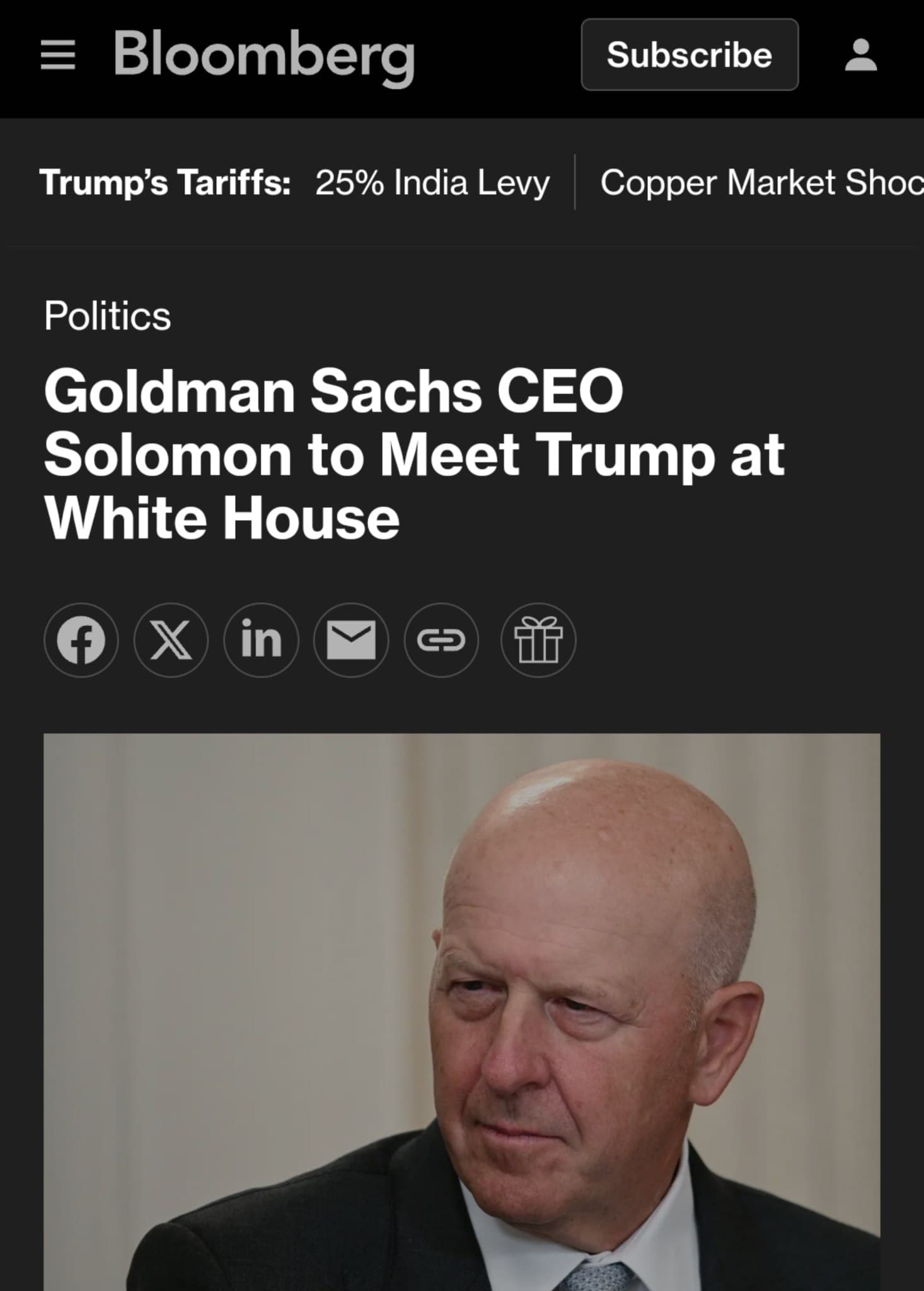Goldman Sachs CEO Solomon Meets Trump Amid Market Turmoil Over Tariffs and Regulation
President Donald Trump is scheduled to meet with Goldman Sachs CEO David Solomon on Thursday afternoon, amidst heightened tensions in financial markets due to the administration"s sweeping tariffs and ongoing uncertainties surrounding banking regulations. This high-profile meeting comes at a critical juncture for the economy, raising questions about the future of trade policies and their implications for the financial sector.
Background & Context
The backdrop of this meeting is marked by significant fluctuations in the U.S. stock market, as investors grapple with the potential consequences of the Trump administration"s aggressive tariff policies. These tariffs, aimed primarily at China, have sparked fears of a trade war that could disrupt global supply chains and economic stability. In addition, there are lingering concerns regarding the administration"s approach to banking regulations, particularly as the financial industry faces increasing scrutiny over its practices and risk management strategies.
Goldman Sachs, a key player in the financial industry, has been at the forefront of these discussions. Under Solomon"s leadership, the firm has navigated a complex landscape of regulatory challenges and market volatility, making this meeting with the president particularly significant. Solomon"s insights into the financial sector could provide valuable perspectives as the administration considers its next steps in both trade and regulatory policy.
Key Developments
As the meeting approaches, the financial community is keenly focused on the potential outcomes. Analysts speculate that Solomon may advocate for a more balanced approach to tariffs, emphasizing the need for policies that protect American interests without stifling economic growth. In recent statements, Solomon has highlighted the importance of international cooperation in addressing trade issues, suggesting that a multilateral approach may yield better results than unilateral tariffs.
Moreover, discussions about banking regulation are expected to be a focal point of the meeting. The financial sector has been lobbying for deregulation, arguing that it would spur economic growth and innovation. However, there are also voices within the administration advocating for stricter oversight to prevent the kinds of risks that contributed to the 2008 financial crisis. Solomon"s perspective on these regulatory matters could influence the administration"s direction in this area.
Broader Impact
The implications of this meeting extend beyond the walls of the White House. Investors and market analysts are closely monitoring the outcome, as any signals from the Trump administration regarding tariffs or banking regulations could lead to significant market movements. A more conciliatory approach to trade could stabilize financial markets, while a continuation of aggressive tariff policies may exacerbate uncertainties, leading to increased volatility in stock prices.
Moreover, the meeting highlights the ongoing relationship between Wall Street and Washington, D.C. As previously reported, the financial sector"s influence on policy-making has been a contentious topic in recent years, with critics arguing that it creates an imbalance in favor of corporate interests. This meeting serves as a reminder of the intricate ties between government and finance, and how they can shape economic outcomes.
What"s Next
Following the meeting, stakeholders will be looking for immediate reactions from both the Trump administration and Goldman Sachs. Investors will be particularly attentive to any changes in rhetoric regarding tariffs and regulation, as these could signal future policy shifts. Additionally, Solomon"s comments may provide insight into how Goldman Sachs plans to adapt to the evolving regulatory landscape.
In the broader context, the economic implications of this meeting may resonate beyond the financial sector. As the administration grapples with balancing trade policies and regulatory frameworks, other industries could also feel the effects of these decisions. Observers will be watching closely to see how this meeting influences not only market dynamics but also the future of U.S. economic policy.
As the situation develops, further analysis and updates will be crucial in understanding the impact of this meeting on both the financial markets and the broader economy.







![[Video] Gunfire between Iraqi security forces and Sadr militias in Baghdad](/_next/image?url=%2Fapi%2Fimage%2Fthumbnails%2Fthumbnail-1768343508874-4redb-thumbnail.jpg&w=3840&q=75)
